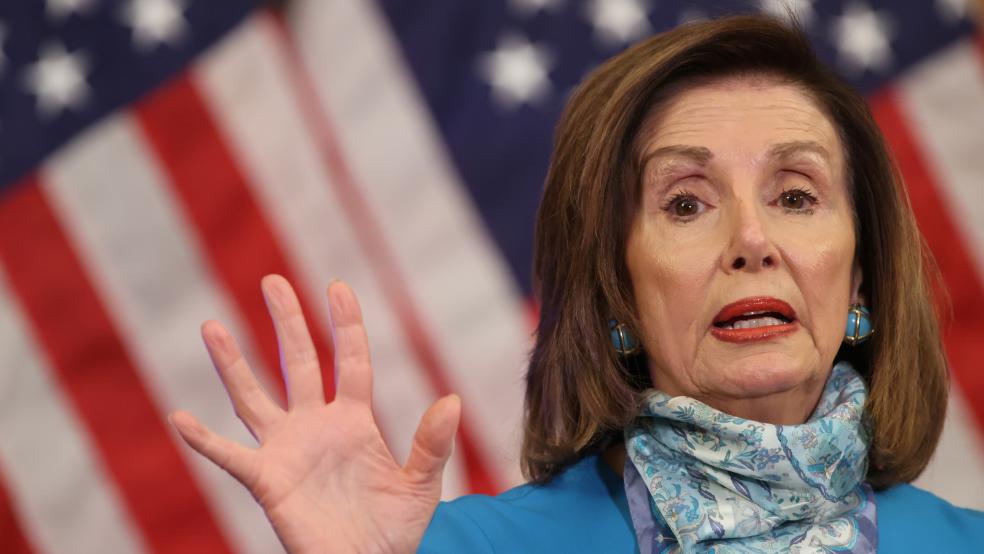House Speaker Nancy Pelosi said Thursday that the next coronavirus relief bill, which is expected to include some kind of extension of the $600 per week unemployment supplement, would cost at least $1.3 trillion — but that amount is “not enough.” In an interview on Bloomberg Television, Pelosi said she was confident Republicans would “come around” to make a deal in the coming weeks, with the final package totaling close to the $3 trillion proposed by House Democrats.
White House says stimulus package must include payroll tax cut: The prospects for reaching a deal may be complicated by White House insistence that any package include a payroll tax cut. “As he has done since the beginning of this pandemic, President Trump wants to provide relief to hardworking Americans who have been impacted by this virus and one way of doing that is with a payroll tax holiday,” White House spokesman Judd Deere said in a statement cited by The Washington Post. “He’s called on Congress to pass this before and he believes it must be part of any phase four package.”
Lawmakers, including key Republicans, have been cool to the idea, which Trump and administration officials have been pushing for months. A spokesperson for Sen. Chuck Grassley, the Republican chair of Senate Finance Committee, said, “Chairman Grassley looks forward to working with the Administration and his fellow lawmakers on the next coronavirus bill. A number of tax relief proposals will be part of the discussion.” That’s not exactly a wholehearted endorsement of a payroll tax cut.
Emergency unemployment aid expires soon: The $600 per week boost in unemployment benefits — which has helped keep millions of Americans afloat since payments began in April — expires in most states on July 25, and it looks increasingly likely that Congress will allow the program to lapse or end, even as lawmakers negotiate a potential extension. The failure to pass an extension before July 25 means there could be a period of at least several weeks with no additional unemployment payments, which could be disastrous financially for the millions of unemployed workers in the U.S., as well as for the economy as a whole. (For more details on how this could play out, see this CNBC piece.)
The Trump administration said earlier this week that it was open to a limited extension at a lower payment level, possibly between $200 and $400 per week. Pelosi on Wednesday signaled that she is willing to negotiate with Republicans on the size of the supplemental payment, though any agreement would depend on how much money is provided in the form of direct assistance to individuals as part of the next stimulus package.
Senate Majority Leader Mitch McConnell (R-KY), however, sounded less interest in extending the extra unemployment payments, saying Tuesday that the “bonus” had been a “mistake.” Many Republicans believe the higher unemployment payments are motivating workers to avoid going back to their jobs, depressing the recovery. Many Democrats, however, argue that there simply isn’t enough work available for the more than 30 million people currently receiving unemployment assistance, and that the supplements are needed to prevent the economy from sliding backward.
Other challenges: Pelosi reportedly wants to include another direct payment to individuals in the bill, and McConnell has said he’s open to the idea, though it’s likely that any payments will be more strictly limited by income. Both leaders also say they want to see aid for schools in the package, and Republicans reportedly are looking at tying aid to schools reopening.
Those and numerous other issues will be difficult to negotiate. Democrats want to include housing assistance for renters and homeowners, but Republicans are opposed. Pelosi wants to provide substantial aid — as much as $1 trillion — to state and local governments, but McConnell and the White House have resisted the idea, expressing concerns about ‘bailing out’ governments that have run large deficits. Democrats also want more food aid and tougher workplace safety rules, but Republicans have resisted, while maintaining that doctors and businesses need more liability protection from lawsuits over potential coronavirus-related illnesses and deaths.
Negotiations expected to start next week. Congress returns to town from its Fourth of July break on Monday and negotiations over the relief bill are expected to begin next week. But it looks like there’s a good chance it may be too late to extend the enhanced unemployment payments without disruption.




